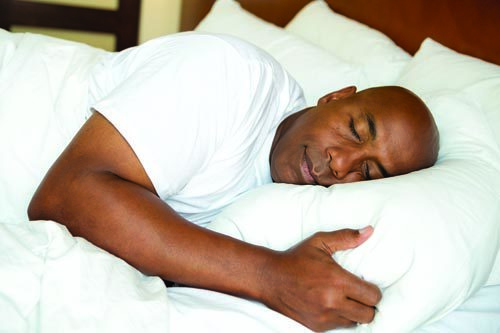Are you getting enough sleep?

Although it’s recommended that adults get seven to nine hours of sleep a night, NIOSH notes that multiple factors may contribute to workers being sleep-deprived. These include shift work, work hours, job stress and physically demanding work.
“Additionally, societal factors such as round-the-clock access to technology and the pressure to work harder has increased work hours, and thus also led to an increase of short sleep among U.S. adults,” NIOSH states. So what can workers do to get better sleep?
Six tips for better rest
Although you may not be able to control all of the factors that hinder a good night’s sleep, the Mayo Clinic recommends adopting certain habits that may help you get better rest:
- Follow a sleep schedule. Do your best to go to bed at the same time – including on weekends. Being consistent will help reinforce your sleep-wake cycle. If you can’t fall asleep after about 20 minutes, do something relaxing until you feel tired.
- Be mindful of what you eat and drink. Don’t go to bed when you feel hungry or overly full. Avoid nicotine, caffeine and alcohol before bed.
- Create a tranquil sleep environment. Keep your bedroom cool, dark and quiet. Avoid looking at light-emitting screens before bed, and consider using room-darkening shades, earplugs or a white noise machine to help you sleep.
- Reconsider naps. Taking long naps during daylight hours can limit nighttime sleep, so if you must nap, limit it to 30 minutes or less. (However, if you work a night shift, you might need to take a nap before work to help make up for lost sleep.)
- Stay active. Regular exercise can help promote better sleep, and spending time outside may be helpful, as well.
- Try not to stress. If worries are keeping you awake, write them down and set them aside for the next day.
Post a comment to this article
Safety+Health welcomes comments that promote respectful dialogue. Please stay on topic. Comments that contain personal attacks, profanity or abusive language – or those aggressively promoting products or services – will be removed. We reserve the right to determine which comments violate our comment policy. (Anonymous comments are welcome; merely skip the “name” field in the comment box. An email address is required but will not be included with your comment.)

